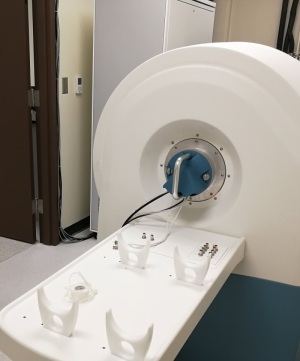by
John R. Fischer, Senior Reporter | July 18, 2018

MR Solutions' 7T MR system requires
no helium liquid, making tasks
with it less costly
Hawaiian researchers are investing in advanced preclinical imaging technology that may bring us a small step closer to saying "aloha" – as in "goodbye" – to high rates of kidney disease.
Situated in the University of Hawaii’s Biology department in Manoa, the 7 Tesla cryogen-free MR system, developed by MR Solutions, will be used to study the development of the condition and why particular ethnic groups are more prone to it than others.
“This is a much needed resource to help detect kidney disease within the Hawaiian population – with a view to making it a thing of the past, or at least reduce the likelihood of getting the disease,” Professor Kevin Bennett of the University of Hawaii, who is the primary researcher on the project, said in a statement.



Ad Statistics
Times Displayed: 46307
Times Visited: 1408 MIT labs, experts in Multi-Vendor component level repair of: MRI Coils, RF amplifiers, Gradient Amplifiers Contrast Media Injectors. System repairs, sub-assembly repairs, component level repairs, refurbish/calibrate. info@mitlabsusa.com/+1 (305) 470-8013
One in seven residents of Hawaii suffers from chronic kidney disease, with the condition more prevalent among residents of Japanese, Filipino and native Hawaiian descent.
Using a contrast agent developed by Bennett, researchers are able to visualize soft tissue within the organ, enabling them to track and identify changes over time that may provide insights into the origin of the disease.
Though performing MR studies can be costly due to the price of helium top-ups, the cryogen-free nature of MR Solutions’ 7T system eliminates this issue, requiring no liquid helium.
Its compact size also enables it to be wheeled into most laboratories compared to a helium-cooled model, the weight and size of which require it to have its own room and substantial building modifications.
Researchers plan to use these features to perform quicker and less costly analyses to obtain information that may support endeavors for opening up earlier access to treatment for patients.
In addition, the system will also be utilized in research for neuroscience, cardiovascular, molecular imaging, physiology and genomics.
Funding for the project is provided by the Army Research Office, American Heart Association, the Hawaii Community Foundation, and the National Institutes of Health.
Bennett and the University of Hawaii did not respond for comment.

